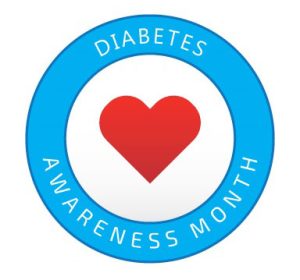
Here at Tri-Lakes Services, Inc., we are thankful for our hard working employees!
As you know, we lost a very special employee on October 12th, Mr. John Howser.
Tri-Lakes Services, Inc. held a Gun Raffle to raise money to help Mr. Howser’s very sweet wife & family with expenses. We ended up raising a total of $5,300.00.
The winner of the Gun Raffle was Ty Morgan from Hugo. Ty won a 30-06!

Thank you to each & every person who helped make this happen!

Meet Our Sanitation Cleaning Crew!


The Sanitation Cleaning Crew hold multiple titles. They have a daily routine that take them to certain locations throughout the mill that have high traffic areas to clean & fog. This helps minimize the spread of COVID-19, as well as other bacteria and germs. Not only do they disinfect with fogging equipment and clean to help keep all employees as well as possible, but they also work as a Fire Watch, Confined Space Attendant, and a Spotter for Mobile Equipment through the mill site.
All training is provided by Tri-Lakes Services, Inc.
Be sure to thank this crew for helping keep the spread of COVID-19 down as much as they can.

Your hard work & dedication are vital to the success of our company.
Thank You for the wonderful years of service.

| Employee | Date of Hire | Employee | Date of Hire |
| Kelly Harp | 11/6/2007 | Eric Barrett | 11/22/2017 |
| Dale Jordan | 11/2/2009 | Justin Bailey | 11/19/2018 |
| Richard Pitt | 11/7/2011 | Collin “Whitey” Finley | 11/19/2018 |
| Alvin Abney | 11/26/2013 | John Womack | 11/19/2018 |
| Shawn Gribnitz | 11/3/2014 | Jamie Gamble | 11/18/2019 |
| Justin Hoover |
11/17/2014 | Susan Stone | 11/5/2020 |
| Jimmy White |
11/11/2017 |
Shawn Hilton | 11/23/2020 |
| Flecia Strain |
11/20/2017 |
Kirklan Loman | 11/23/2020 |

 United Health Care is here to help you manage your health. If you elected medical coverage during your enrollment period, be sure to register yourself at www.myuhc.com to see the benefits of your UHC plan.
United Health Care is here to help you manage your health. If you elected medical coverage during your enrollment period, be sure to register yourself at www.myuhc.com to see the benefits of your UHC plan.

November is Diabetes Awareness Month
It’s our chance to show the world what life with diabetes is really like.
Every year, communities come together to ring the alarm on the diabetes epidemic. For the millions people who are at risk for it, it’s a time to get educated, find resources and make sure all those around are aware of their risk, too. And for the millions living with diabetes, it’s a chance for them to tell their stories and awaken the world. Until we find a cure, we will find each other and lift each other up.
Whether you’ve been newly diagnosed, have been fighting against type 1 or type 2 diabetes for a while, or are helping a loved one, this is the start of gaining a deeper understanding of how you can live a healthier life, with tools, health tips, and food ideas you may need. Wherever you’re at with your diabetes, know that you have options and that you don’t have to be held back. You can still live your best life. All you have to do is take action and stick with it.
Understanding Type 1
In type 1 diabetes, the body does not produce insulin. The body breaks down the carbohydrates you eat into blood sugar (blood glucose) that it uses for energy—and insulin is a hormone that the body needs to get glucose from the bloodstream into the cells of the body. With the help of insulin therapy and other treatments, everyone can learn to manage their condition and live long, healthy lives.
Remember: this is a condition that can be managed. By living a healthy lifestyle filled with exercise and proper diet, you can live a normal life and do everything you set out to do.
Understanding Type 2
Type 2 diabetes is the most common form of diabetes—and it means that your body doesn’t use insulin properly. And while some people can control their blood sugar levels with healthy eating and exercise, others may need medication or insulin to help manage it.
A key part of managing type 2 diabetes is maintaining a healthy diet. You need to eat something sustainable that helps you feel better and still makes you feel good. Remember, it’s a process. You will have to do some work to find helpful tips and diet plans that best suit your lifestyle—and ways you can make your nutritional intake work the hardest for you.
Fitness is another key to managing type 2. And the good news, all you have to do is get moving. The key is to find activities you love and do them as often as you can. No matter how fit you are, a little activity every day can help you put yourself in charge of your life.
Understanding Gestational Diabetes
Doctors & Researchers don’t know what causes gestational diabetes, but they do know that you are not alone. It happens to millions of women. They do know that the placenta supports the baby as it grows. Sometimes, these hormones also block the action of the mother’s insulin to her body and it causes a problem called insulin resistance. This insulin resistance makes it hard for the mother’s body to use insulin and this means that she may need up to three times as much insulin to compensate.
The key to treating it is to act quickly—as treatable as it is, gestational diabetes can hurt you and your baby. Work with your doctor to keep your blood sugar levels normal, through special meal plans and regular physical activity. Your treatment may also include daily blood sugar testing and insulin injections.
Understanding Diabetes From Other Causes
In addition to type 1, type 2, and gestational diabetes, a small minority of people develop specific types of diabetes due to other causes. This includes:
- Monogenic diabetes syndromes, such as neonatal diabetes and maturity-onset diabetes of the young (MODY)
- Diseases of the exocrine pancreas, such as cystic fibrosis and pancreatitis
- Drug or chemical-induced diabetes, such as with glucocorticoid use, in the treatment of HIV/AIDS or after organ transplantation
Because these types of diabetes are rare, they are often misdiagnosed as other types of diabetes. If you think you might have one of these types, be sure to talk with your doctor.
Understanding Pre-Diabetes
When it comes to prediabetes, there are no clear symptoms—so you may have it and not know it. Here’s why that’s important: before people develop type 2 diabetes, they almost always have prediabetes—blood sugar levels that are higher than normal but not yet high enough to be diagnosed as diabetes. You may have some of the symptoms of diabetes or even some of the complications.
Regardless, check with your doctor and get tested. If you discover that you do have prediabetes, remember that it doesn’t mean you’ll develop type 2, particularly if you follow a treatment plan and a diet and exercise routine. Even small changes can have a huge impact on managing diabetes or preventing it all together—so get to a doctor today and get tested.
Helping Your Loved Ones Live With Diabetes
Hearing that your child or loved one has diabetes can be a shock. But after that shock wears off, know that there are plenty of things you can do to help manage their diabetes. With planning and preparation, you can get back to normal life and resume your daily activities.
You can make physical activity part of every day. You can create a balanced diet for your child—one that everyone can live with and thrive on. Throughout it all, know that diabetes can’t keep your child from doing whatever they want and achieve their highest goals. There are Olympic athletes with diabetes, as well as professional football players, politicians, actors, rock stars, and CEOs. So, take a deep breath. You can do so much to make sure the people you love are thriving as they manage their diabetes.
You can get more information from your healthcare provider or go to www.diabetes.org

Congratulations to the Courage to Care winners!
Kenny Dover, Keith Humphrey, Tony Harris, James Hutchison,
Colton Tucker, Martin Velazquez-Aguilar & Paul White

